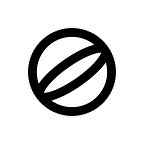Smart Breaks Help to Boost Productivity and Reduce Stress
People tend to fall into two categories: procrastinators and workaholics. Workaholics are often put on a pedestal, yet working 24/7 can be as harmful to health and career as doing tasks last minute before the deadline. Anyway, there is an option to prevent burnout caused by permanent stress.
More than 90 studies have shown that taking breaks at work can help individuals recover from the strain after a high workload. Additionally, smart breaks offer various benefits such as improved mental and physical well-being, better performance, and workplace safety.
What kind of breaks are beneficial?
Breathing exercises
Relaxation techniques, such as meditation and breathing exercises, can help develop healthier ways of responding to stress. 15 minutes of daily breathing exercises or meditation can slow the heartbeat and lower or stabilize blood pressure, which can reduce anxiety and help prevent depression.
Yoga and stretching
Popular practices such as yoga and stretching not only boost creativity and improve both physical and mental health, but also reduce tension and other desk job pains, helping to avoid injuries.
Reading
Studies have shown that reading as little as 6 minutes per day can improve your quality of sleep, reduce stress, and sharpen mental acuity. Reading strengthens the neural circuits and pathways of our brain while lowering heart rate and blood pressure.
Lunch break
Put your phone away while having a lunch break. A recent survey by Tork shows that lunch breaks increase job satisfaction, efficiency, and the likelihood to recommend the employer to others. 81% of employees who take a daily lunch break have a strong desire to be an active member of the company.
Go for a little walk outside
Walking around for a few minutes every hour can help you refocus and give your body a break.
Socialize with your coworkers
Not only socializing gives you relief from work-related stress it also encourages new ideas and improves connection and trust among employees.
Rest in the napping room
An intensive 2006 study of Flinders University students in Australia showed that 10-minute naps immediately enhanced performance.
What kind of breaks are harmful?
Not all breaks have a positive influence on performance. The research shows that drinking caffeine, smoking, mindless snacking, and online shopping can actually increase fatigue. Scrolling through social media during breaks lowers your ability to focus back on work as well.
New Science on Micro-Breaking
According to research that included 22 studies from 19 manuscripts published within the last 30 years, micro-breaking can increase overall well-being and productivity. The review found that employees who discontinued a task for periods of 10 minutes or less feel less tired and stressed.
The concept of micro-breaks originates from ergonomics, which is defined as scheduled rests that individuals take to prevent physical symptoms such as musculoskeletal pain or discomfort. The study examined various types of breaks, including physical breaks, relaxing activities, and engaging activities such as watching videos or listening to music.
The researchers analyzed the study results and found that micro-breaks preserved high levels of vigor and alleviated fatigue in participants. When it comes to increased performance, the researchers noted that the longer the break taken, the better the performance among the study subjects. Additionally, the type of task from which you’re taking a break also matters. Micro-breaks significantly increased performance for clerical work and creative exercises.
Breathhh Helps You Navigate Smart Breaks to Feel Better
Smart breaks for different activities have been scientifically proven to be an effective way to reduce stress, prevent burnout, and maintain good mental health. Oddly enough, interruptions can also increase productivity and improve overall well-being and job satisfaction.
The cycle from being fully focused to feeling fatigued lasts for 90 minutes, so taking a break every 75–90 minutes can be effective. Research from Baylor University suggests taking a more extended break in the morning, even if it is your peak productivity time, between 10 and 11 am.
There is no one-size-fits-all smart break schedule, but the Breathhh browser extension can determine the best time to take a break and notify you when it’s time. It uses artificial intelligence to personalize smart break offerings, including breathing exercises, journaling, attention control tools, and background noises. These practices are provided at the right time and presented neatly to each person.
